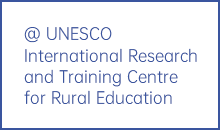On June 13, 2024, the China-Southeast Asia Capacity Building Workshop on Transforming TVET and Adult Education for Sustainable Rural Development was successfully held at Beijing Normal University. This workshop was jointly organised by the UNESCO International Research and Training Centre for Rural Education (INRULED), the UNESCO Regional Office for East Asia, the Southeast Asian Ministers of Education Organization Regional Centre for Technical Education Development (SEAMEO TED), and the Institute of Vocational and Adult Education at Beijing Normal University; it was co-organised by the China Institute of Education and Social Development at Beijing Normal University, the Faculty of Education at Beijing Normal University, and the UNESCO Chair on Artificial Intelligence in Education. The workshop received guidance and support from the Secretariat of the Chinese National Commission for UNESCO and the China Education Association for International Exchange.
The workshop attracted 80 policymakers, administrators, practitioners, and scholars from China and eight Southeast Asian countries in the field of Technical and Vocational Education and Training (TVET) and adult education, with over 1,500 audience attending online.
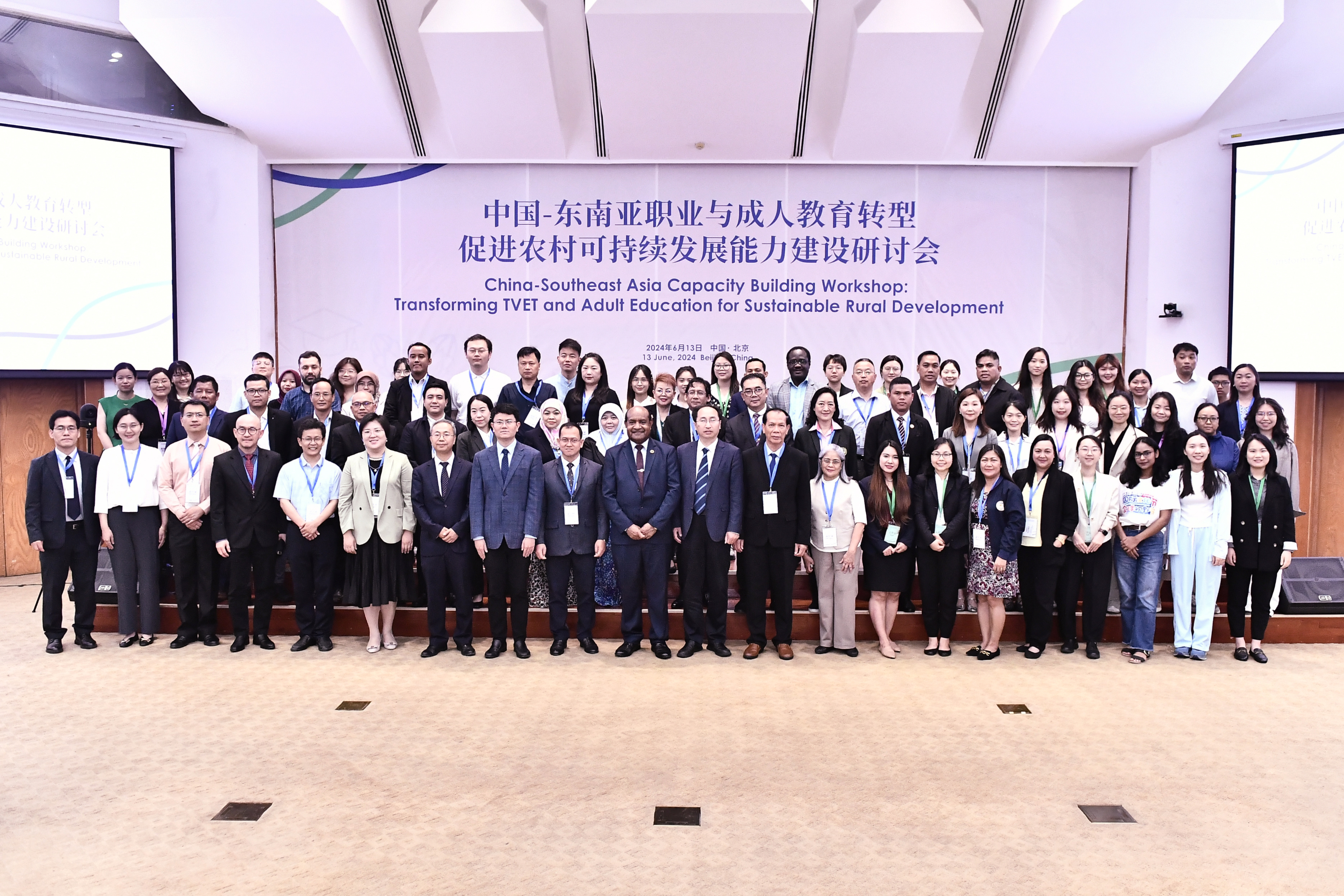
During the workshop, more than 30 researchers, practitioners, and stakeholders in the fields of TVET, adult education, and rural development from China, Brunei, Cambodia, Indonesia, Malaysia, the Philippines, Singapore, Thailand, and Vietnam engaged in in-depth discussions on the theme of “Transforming TVET and Adult Education for Sustainable Rural Development.” They took stock of the current development of TVET and adult education, showcasing innovations, explorations, and best practices at the national level.This exchange paved the way for new ideas and strategies in advancing rural development.
Speeches
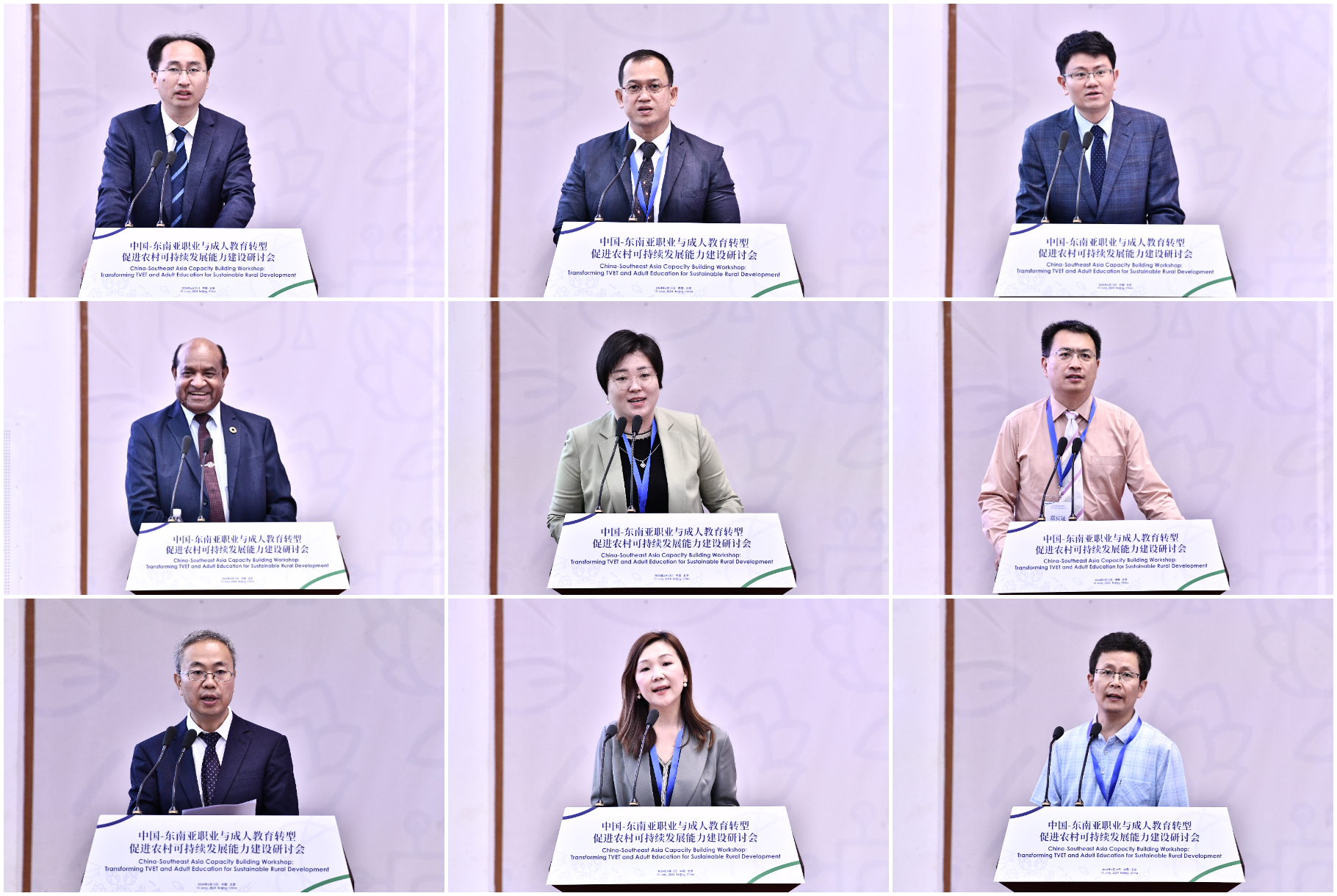
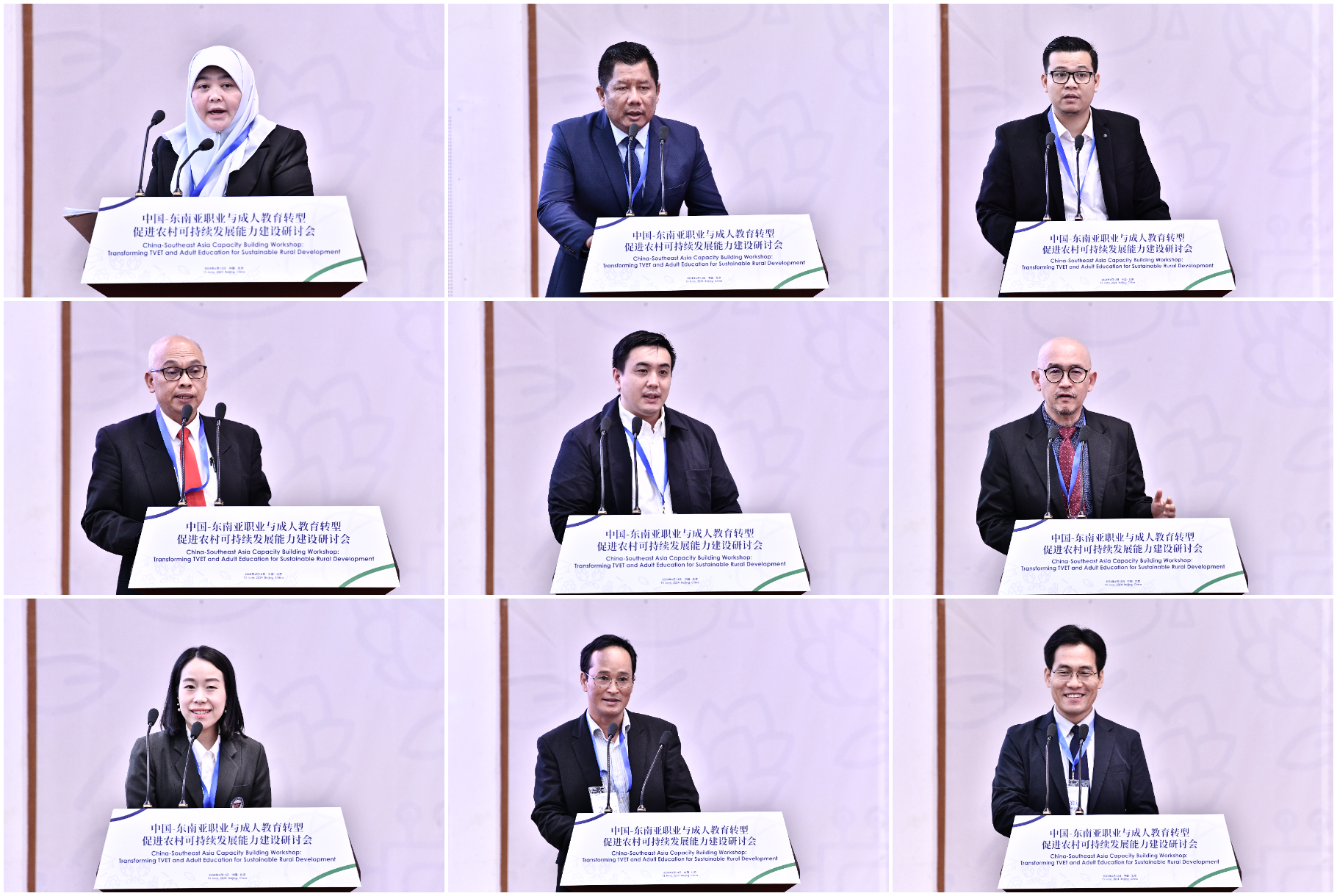
After the workshop, 25 delegates from eight Southeast Asian countries embarked on a five-day field visit in Beijing and Ningbo, Zhejiang Province. Through themed dialogues, field visits, and roundtable discussions, they participated in thorough discussions with government departments, colleges and institutions, and enterprises. The field trip received support from the China Education Association for International Exchange, the Ningbo Education Bureau, and the Ningbo Institute of Vocational and Adult Education.
In Beijing, the delegates visited the Weigongcun Campus of the Open University of China and the National Engineering Research Center of Cyberlearning and Intelligent Technology at Beijing Normal University. The primary focus was to gain insight into China’s strategic approaches to promoting lifelong learning for all and utilizing technology to mitigate educational inequities.

In Ningbo, the international delegates visited a rural revitalization base in Kuangyan Town in Cixi City, where the local adult education institutions play a key role in its construction. They toured the Frey Eco-Farm, the nearby Art Village, and Shanglin Lake Celadon Cultural Heritage Park. Observing organic farming, local specialty agricultural products, and the ancient craftsmanship of Yue Celadon provided insights into local rural revitalization efforts and highlighted the role of local adult education institutions in promoting economic diversification, innovation, entrepreneurship, cultural heritage protection, and sustainable rural development through skills development.
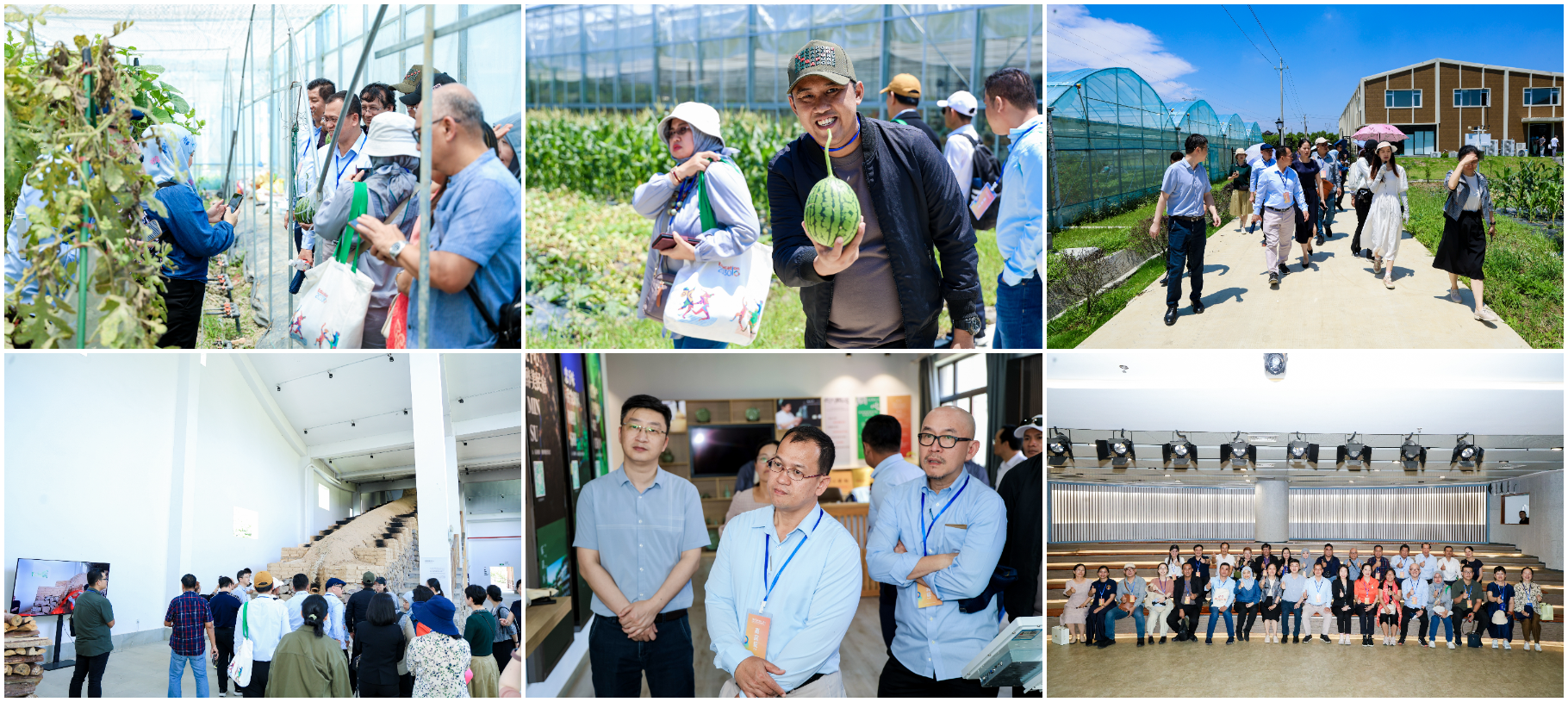
At Ningbo Polytechnic, Ningbo Foreign Affairs School, and local enterprises including Haitian Group, Geely Group, and Fotile Group, the delegates explored the classroom facilities of the Ningbo TVET colleges and gained insights into successful local practices in curriculum development, teacher’s professional development, and industry partnerships. The local colleges presented particularly impressive examples of private sector engagement in TVET provision, ensuring that training programmes align with industry demands and adequately prepare students for future careers.
These visits facilitated the exchange of experiences and perspectives on TVET between Chinese and Southeast Asian practitioners. Nine representatives from Southeast Asian TVET colleges shared their best practices at the school level and engaged in in-depth discussions with local vocational colleges and enterprises. They discussed forming tripartite cooperations with enterprises that have foreign investments in their home countries to conduct potential joint training programmes.
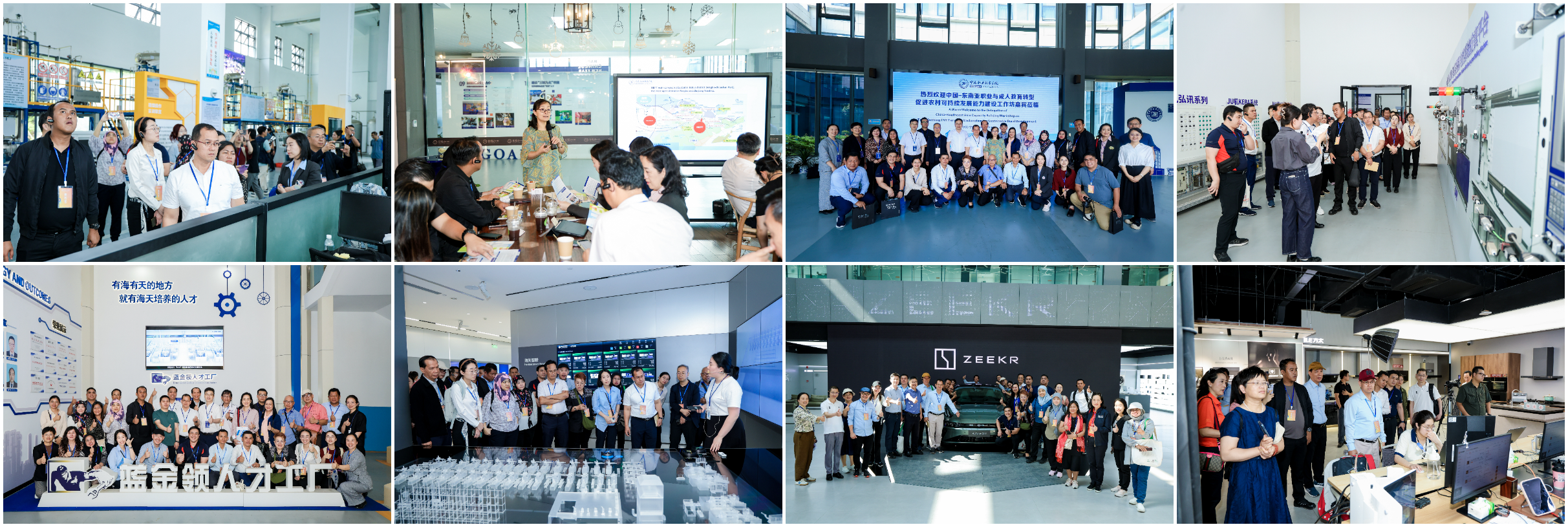
This workshop united policymakers, researchers, administrators, and practitioners from nine countries to deepen academic exchanges and strategic cooperation in education and rural development. It emphasised the pivotal role of TVET and adult education in sustainable rural development. By fostering partnerships and networks, the workshop aimed to enhance TVET and adult education programmes tailored to rural needs, bridging the skills gap and unlocking rural potential for inclusive growth and resilient communities.










